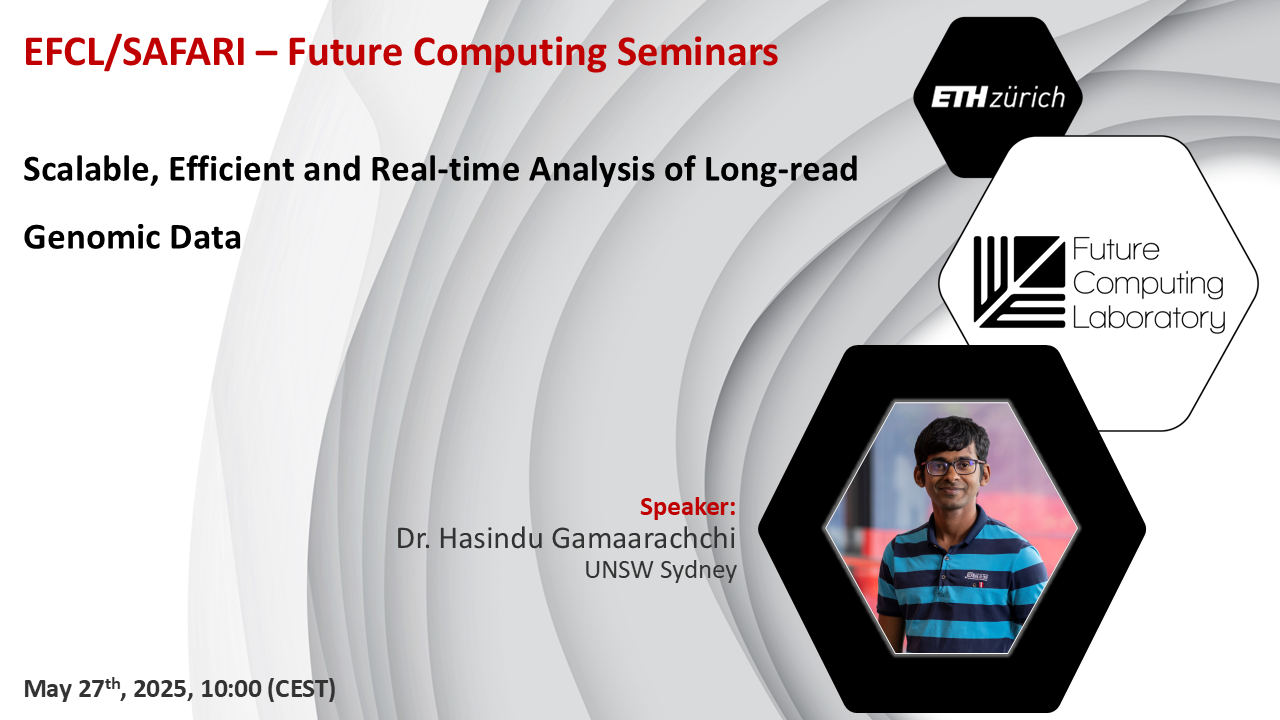Scalable, Efficient and Real-time Analysis of Long-read Genomic Data

Join us for our upcoming Future Computing Seminar Series
Speaker: Dr. Hasindu Gamaarachchi (UNSW Sydney)
Date: May 27th, 2025, 10:00 CET
Where: CAB G61 & external page Online
Abstract:
Third-generation genomic technologies that can sequence long reads are revolutionising various fields involving living organisms, including agriculture, medicine, forensics, ecology and biosecurity. The potential applications of these genomic technologies range from precision medicine to the rapid identification of pathogens. Despite these exciting applications, genomic data analysis is often limited to large institutions due to high costs and the need for specialised resources.
With the advent of cheaper, portable genomic sequencers, such as nanopore sequencers, this situation has improved. However, the necessary complementary computational methods still lag behind, requiring large supercomputers, taking a long time to process population-scale data, restricting the truly portable and accessible use.
In this talk, I will discuss our most recent research on making long-read data analyses scalable, efficient, real-time, portable and accessible. Examples include methods that enable simulation and visualisation of nanopore signal data simply on a laptop computer, streamlining remote nanopore data access to query genomic regions in population-scale nanopore signal data, new compression methods for reducing the size of nanopore signal data and real-time analysis of DNA/RNA modifications.
Bio:
Hasindu Gamaarachchi is a lecturer in bioinformatics at the School of Computer Science and Engineering, UNSW Sydney, Australia. He is also a visiting scientist in the Genomic Technologies Group at the Garvan Institute of Medical Research. From 2020 to 2022, he worked as a Genomics Computing Research Scientist at the Garvan Institute of Medical Research. Hasindu completed his PhD in Computer Science and Engineering at UNSW Sydney in 2020. He completed his bachelor’s degree with first-class honours in Computer Engineering from the University of Peradeniya, Sri Lanka, in 2015.
Hasindu's research interests include the design, development and optimisation of bioinformatics software for real-time third-generation sequencing data analysis and prototyping novel domain-specific computer systems for efficient genomics data analysis. He has published in top journals in the field of genomics/bioinformatics, including Nature Biotechnology, Genome Biology, and Bioinformatics. Hasindu is a recipient of the ARC Discovery Early Career Researcher Award 2023 and the ABACBS Outstanding Bioinformatics Software Developer Award 2024.